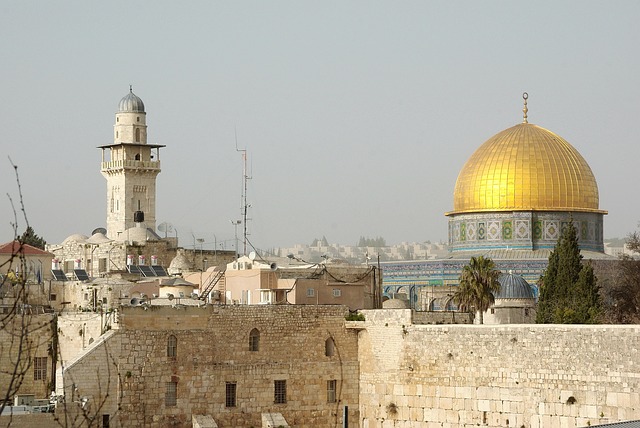Palestine, a land of rich history and complex politics, often hides its hidden gems in the shadows of the Israeli-Palestinian conflict. In this article, we will explore some of the rarely known aspects of Palestine, offering a deeper understanding of this remarkable region, beyond the headlines and political discourse.
- Jericho: The Ancient City that Stands the Test of Time (Established ~8000 BCE)
Jericho, nestled in the West Bank, holds the title of one of the oldest continually inhabited cities globally, with a history stretching back almost 10,000 years. Imagine the stories that these ancient walls could tell, from the days of the Canaanites to the biblical era and beyond. Jericho’s endurance through the millennia serves as a living history book, and its archaeological sites tell a story of human perseverance and adaptability.
- Varied Landscapes: Beyond the Desert (Date: Ongoing)
While Palestine is often associated with the arid landscapes of the West Bank and Gaza Strip, the region offers more than meets the eye. From the fertile Jordan Valley to the majestic Judean Hills in the West Bank, the geographical diversity of Palestine is striking. The Mediterranean coastline, spanning around 195 kilometers (121 miles), adds yet another layer to its beauty, making it a land of both natural and cultural richness.
- Cultural Heritage and Culinary Delights (Throughout History)
Palestinian culture is deeply interwoven with its history, and it has given birth to a rich tapestry of music, literature, and art. But it’s the Palestinian cuisine that truly tantalizes the taste buds. Falafel, which has been savored for centuries, is a hallmark of Palestinian street food. Hummus, with roots dating back thousands of years, is a versatile and beloved dish that transcends borders.
- Petra’s Palestinian Roots (Date: Nabatean Civilization ~4th century BCE – 106 CE)
Although Petra is commonly associated with Jordan, the Nabateans, who crafted and inhabited this astounding city, were originally from the southern reaches of historical Palestine. Dating back to the 4th century BCE, Petra’s rose-red sandstone architecture and intricate carvings reflect a glorious past, marked by trade along the Incense Route.
- Religious Significance (Throughout History)
Palestine is a place of profound religious importance, making it a holy land for Jews, Christians, and Muslims. The Western Wall in Jerusalem, a site for Jewish prayer and pilgrimage, stands as a testament to thousands of years of history. The Church of the Holy Sepulchre, believed to house the crucifixion, burial, and resurrection site of Jesus Christ, draws Christians from around the world. The Al-Aqsa Mosque, the third holiest site in Islam, remains a symbol of spiritual significance.
- Jaffa Oranges: A Global Sensation (19th and 20th Centuries)
Jaffa oranges, often associated with Palestine, gained worldwide recognition for their exceptional sweetness and quality. At the height of their popularity, they were a key export, marking a significant era in the region’s agricultural economy. During the late 19th and early 20th centuries, these oranges were in high demand across the globe, symbolizing Palestine’s unique contribution to global agriculture.
- Cultural Contributions: Mahmoud Darwish and More (Throughout the 20th Century)
Palestinian literature and arts have made a significant impact on global culture. Mahmoud Darwish, often referred to as the Palestinian national poet, crafted verses that expressed the Palestinian experience and aspirations. His masterpiece, “The Poem of the Land,” continues to resonate with readers worldwide, shedding light on the depth of Palestinian artistic expression.
- Palestinian Diaspora: A Global Community (Throughout History)
The Palestinian diaspora is a vast and widespread community, with millions of Palestinians residing outside their homeland due to conflicts and displacement. Communities have formed in various countries, with significant populations in Jordan, Lebanon, and the United States. This dispersion, while marked by challenges, has allowed the Palestinian identity and culture to flourish in diverse corners of the world.
- Palestinian Arabic: A Unique Dialect and Alphabet (Throughout History)
Palestinian Arabic, spoken locally, boasts a distinct dialect and script. This dialect incorporates unique words and phrases specific to the region, and the written script can differ from Modern Standard Arabic in informal communication. It’s a testament to the linguistic diversity that enriches the Palestinian culture.
- The Ongoing Israeli-Palestinian Conflict (Throughout the 20th and 21st Centuries)
The Israeli-Palestinian conflict, rooted in historical and political complexities, remains a defining issue in the region. The ongoing struggle for self-determination and statehood shapes the lives of millions and is a defining narrative in the region’s contemporary history.
- Arab Christians: An Ancient Community (Throughout History)
Palestinian Arab Christians, although a minority, hold a unique position as one of the oldest Christian communities globally. Their roots in the region date back centuries, and their religious traditions and cultural contributions have left an indelible mark on the complex tapestry of Palestinian society.
- Cultural Resistance: Art as a Voice (Throughout the 20th and 21st Centuries)
Palestinian art and culture have been powerful tools of resistance against occupation and oppression. Artists have used various mediums, such as graffiti, literature, and music, to express the Palestinian struggle for self-determination and human rights, showcasing the resilience and creativity of the Palestinian people.
Palestine’s history and culture offer a profound and multi-faceted narrative that goes well beyond the headlines and political discourse. Exploring the ancient cities, diverse landscapes, rich culinary heritage, and cultural contributions not only sheds light on the resilience of the Palestinian people but also highlights the enduring significance of this remarkable region on the world stage. These rarely known facts and figures serve as a reminder of Palestine’s extraordinary legacy and its place in the tapestry of human history.




